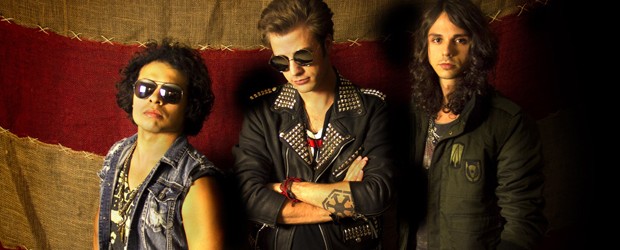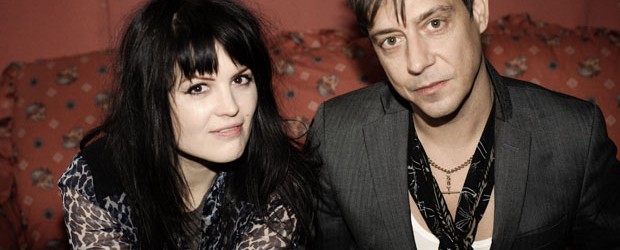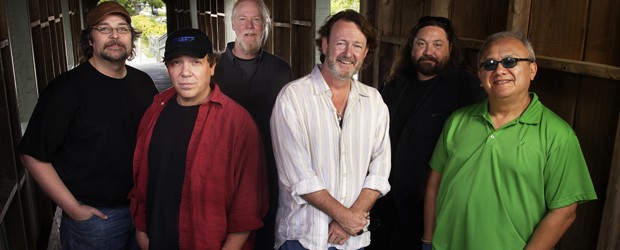Wolf Parade

Everyone is a bit of a screw up in the band, so we tend to lead pretty stupid lives. We make a lot of mistakes.
story by Gina Pantone
photo by Michael Doerksen
“If Zeus were a drummer, he’d play loud,” says Arlen Thompson of Wolf Parade, who seems to know a thing or two about mythological rock ‘n’ roll. “I think Zeus would probably be a drummer out of the Grecian gods. Hermes would probably play guitar. Thyestes would be bass, and Aphrodite would probably be Janis Joplin.”
As far as supergroups are concerned, the Montreal quartet is no stranger to strings attached. If their friends and former colleagues were displayed on a wall like family photographs, posed portraits of The Arcade Fire, Hot Hot Heat and Modest Mouse would be mounted above the mantel – Isaac Brock being the producer patriarch. “I think it [having connections] is a good thing; it definitely helped us move forward,” Thompson said of his Northern American brethren. “It’s interesting to me that a lot of people compare us to Modest Mouse or Arcade Fire, but I think we stand out musically. There will always be elements of that [friendly influence] in our music.”
A lot has changed since Wolf Parade formed in Victoria, British Columbia, although their beginnings were humble and slightly misleading. Singer/pianist Spencer Krug and guitarist Dan Boeckner created the band, even thought their first gig was organized under a slightly false resume. Krug agreed to play the show without having any material, and basically gave Boeckner three weeks to feverishly rehearse. The gig went well, and the duo decided to add two members to the mayhem – two hairy guys to be exact.
Thompson (drums) and Hadji Bakara (electronics) came onboard Wolf Parade and the wheels started turning. Their first EP was recorded and with a little help from their Seattle rodent friends, they had signed a deal with Sub Pop. Isaac Brock would produce their first record, Apologies to the Queen Mary.
The group suddenly found themselves relocated in Montreal and financially supported. Thompson discussed the new factors in the band’s development: “We recorded our first two EPs for about 30 bucks total, so having more money and more access to something better than the two tin cans that we recorded them [the first EPs] on definitely is going to be more polished. I mean, there definitely is that aspect of having to make the recording sound more commercial, to get on the radio and whatnot. I don’t know, it [the label] certainly didn’t have too much of an influence on it, we still got to make the decisions that we wanted.”
Despite the band’s fears of squeaky-clean production, Apologies to the Queen Mary is surprisingly gritty. Songs like “Modern World” and “Shine a Light” could’ve been recorded in Beck’s basement, with muffled drums and vocals reminiscent of Modest Mouse timbre. Wolf Parade’s finished product sounds generally uplifting, though Krug’s sound and words channel a sense of desperation and distrust hidden within. “Maybe there are moments of paranoia,” Thompson fesses. “I think a lot of thoughts contain doubts and uncertainty. Everyone is a bit of a screw up in the band, so we tend to lead pretty stupid lives. We make a lot of mistakes.”
Though not perfect, Wolf Parade has shown the world they are ready to compete with their Quebec class – and are armed with some mean facial hair to prove it. Thompson’s dastardly moustache has even taken on new form. “Well I’ve gone with the full beard now, so maybe that’s the good side of me coming out.”
Wolf Parade :: with Robbers on High Street :: Schubas :: Oct. 14.






